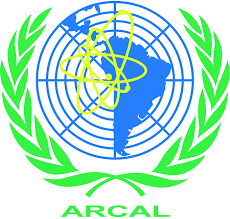ARCAL Is Assisting Latin American Nations In the Peaceful Use Of Nuclear Technology
Yukiya Amano is the Director General of the Regional Cooperation Agreement for the Promotion of Nuclear Science and Technology in Latin America and the Caribbean (ARCAL). At a conference in Varadero, Cuba, he said that in the last thirty-five years, Latin America has made significant progress in the use of nuclear techniques for development projects.
Armano said, “It has been fascinating to observe the steady progress being made by countries of this region in using nuclear science and technology to improve the health and prosperity of their people. ARCAL played a key role in this process. Its work has also led to a significant strengthening of what is often called ‘south-south cooperation,’ with more advanced users of nuclear technology sharing their expertise with their neighbours.”
Every two years, the presidency of ARCAL passes from one member nation to another. Mexico has had the presidency for the past two years and is passing it to Cuba. Fidel Santana is the Deputy Minister of Science and Technology in Cuba. He says that ARCAL will continue to focus on strengthening ties for cooperation in the region. He said, “We will continue working towards new goals and strengthening the alliance. The integration, coordination and training of human resources is an example of what can be done in south-south cooperation. We will enhance the promotion and use of nuclear technology for peaceful purposes.”
ARCAL was originally created to “…promote, foster and coordinate the use of nuclear techniques for peace and development.” It has worked for the past thirty-five years to provide nuclear science and technology for use in health care, food and agriculture, industry and other peaceful uses.
ARCAL has helped reduce fruit fly infestation in Mexico and Guatemala by sterilizing the insects. Radiation induced mutation has been used to develop new varieties of tomatoes and quinoa in multiple countries in Latin America. Isotopic techniques have been used to improve the management of water resources and to monitor marine pollution.
Amano said, “The Agency cooperates directly with each of your 21 state parties. But ARCAL has proven to be an excellent framework for taking a more strategic approach to using nuclear technology to help address common problems across this region of some 580 million people.”
Amano also spoke about that assistance of the International Atomic Energy Agency in with respect to the use of nuclear techniques and technologies in meeting ARCAL needs. The IAEA provided equipment and training to help identify the Zika virus after there were outbreaks in twenty-six countries and territories in 2016. In 2018, the IAEA provided equipment to Ecuador and Mexico that allowed them to employ non-destructive testing techniques to determine whether buildings damaged in earthquakes were in danger of collapsing.
Over its thirty-five-year life, ARCAL has gained approval for one hundred sixty-three technical cooperation projects. Nearly forty million dollars have been invested in capacity building and infrastructure for the region. Four hundred training courses, two hundred expert missions and the training of sixteen hundred professionals have been organized by ARCAL.
Working together, ARCAL and the IAEA developed the Regional Strategic Profile for Latin America and the Caribbean for 2016 to 2021. Six high priority area were identified, including food security, human health, the environment, energy, radiation safety and radiation technologies.
